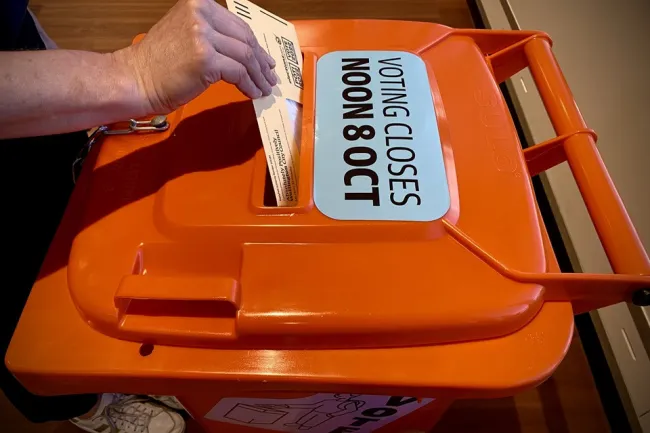LGNZ launches Electoral Reform Group
LGNZ has established a new group focused on local electoral system reforms that drive greater voter participation and implement four-year terms. Nelson Mayor Nick Smith will chair the LGNZ Electoral Reform Group.
June 05, 2024

“Serious reform of our local electoral system is needed,” LGNZ President Sam Broughton said.
“Currently, local elections are cumbersome and inefficient compared with the general election. We also feel there is too much time and money wasted by having short three-year terms.
“Local government does important work and makes long-term decisions on behalf of our communities. It’s important we have a strong local democracy backing that, but we need to get the settings right.
“This new group, led by Mayor Nick Smith, will explore four key areas of reform and will work with Mayors, Chairs, councils and communities to drive the necessary changes,” Sam Broughton said.
The four key areas of focus for the electoral reform group are:
- Increasing voter turnout
- Implementation and transition to four-year terms
- Considering the ways people can vote
- Who should administer local elections, and how they are best run
“The decline in voter participation over the last three decades is a threat to the mandate Mayors and councils have to speak up for their communities,” Chair of LGNZ’s Electoral Reform Group Nick Smith said.
“There are also questions over the viability of postal voting with the decline in postal services and most people doing their business online.
“It is more important than ever, with democratic values being challenged internationally and growing disinformation on social media, that we refresh our approach to local elections.
“This is difficult work as changes to our electoral law are best made by broad agreement.
“I will be working directly in this new role with Mayors, Chairs, councils, and communities around New Zealand on how improvements in our local democracy can best be achieved. I also look forward to engaging with the Government and Opposition political parties on building support for positive reform,” Nick Smith said.
In the 2022 Rangitīkei District local elections, only 46 percent of the eligible voters, 5063 people) voted. This was more than the national average (40.44 percent).
